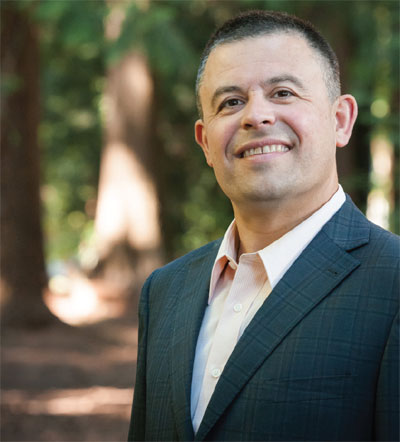Yves Tiberghien: 'Fresh start' for China-Canada relations
Updated: 2015-11-27 11:59
By David Hou in Vancouver for China Daily(China Daily USA)
|
||||||||
The new Liberal government in Canada could pave the way for closer relations with China, says Yves Tiberghien, a professor and director of the Institute of Asian Research at the University of British Columbia.
"This is the opportunity for a fresh start," he said. "The Liberal government has not yet decided its core approach to China and has not spelled much out during the campaign. But we know that the Trudeau government will fit in the traditional Liberal approach, which is multilateralist in nature and in favour of global engagement," he said.
"The Liberals also have a good historical record (including new Prime Minister Justin Trudeau's father Pierre's record) with China, having presided over a positive period in bilateral relations."
Tiberghien specializes in East Asian comparative political economy, focusing on China, Japan, Korea and Southeast Asia. He is best known for his work in studying the intersection of Asian and Western politics.
Tiberghien is excited about the possibilities a new government can bring to China-Canada relations. He cited the lack of follow-up on then-Prime Minister Brian Harper's 2014 visit to China as an example of an opportunity for the new government.
"A strategic dialogue was started in November 2014 after Prime Minister Harper's visit to China. Yet, little action took place, and Canada did not engage China on the Asian Infrastructure Investment Bank (AIIB)," he pointed out. "The Liberal government could take advantage of this strategic dialogue and express interest in the AIIB."
The rising political and economic clout of China necessitates closer engagement from the West.
"On one hand, the federal government under Justin Trudeau will agree with the BC government on the need for engagement with China in terms of trade, investment, G20, global institutions etc," Tiberghien said. "On the other hand, the Trudeau government is taking a more proactive approach on climate change and nature preservation. That could lead to some clashes over energy exports, particularly LNG (liquefied natural gas)," he adds. "But a compromise will surely be found."
China's rising influence is the subject of Tiberghien's most recent book Asia and the Future of the World. He noted that China's own change in leadership in 2008 also resulted in a more proactive stance on the global stage.
For now, though, the US holds sway over world affairs, although the relationship with China has much give and take, he said.
"It remains true that the US remains the dominant power in the global system and represents a key reality for Chinese actions," Tiberghien said. "US-China relations and US-China agreements have a huge effect on global affairs, as is happening now on climate-change negotiations and also within the G20.
"China thus always calculates US reactions when preparing its own international moves," he said. "Yet, Chinese actions also start to provide key constraints on US actions.
Tiberghien said that with the Liberals in power, however, new lines of dialogue can open.
"In this context, Canada can either bandwagon with the US (as often in the past few years) or take a more independent middle power role," he said. "Under that second role, pioneered by the Liberals in the past, Canada can initiate new initiatives and act as a middle power or mediating power between various sides."
He said that Canada can play a major role in initiating new institutions or nudging other powers (including the US and China) toward some global public good formation."
A key factor in the negotiations is the human element of political demographics. Provinces such as British Columbia (with the highest percentage of Asian population in Canada) and Ontario (the second highest) are central in the decision-making process of economic and political legislation.
"A key reality in China-Canada relations is the human diaspora that links our two countries," Tiberghien said. "In Vancouver, the Chinese community and diaspora is a huge part of the dynamism of our city. Canada and Vancouver can serve as a platform for exchange, dialogue and incubation of new institutions or approaches to global affairs."
Tiberghien has noted an increase in student interest in Chinese politics and economy.
"China will play an important part of the reality for the future of our current students. I always encourage students to be curious and seek to learn more about China, travel to China, engage with Chinese friends, work in China etc."
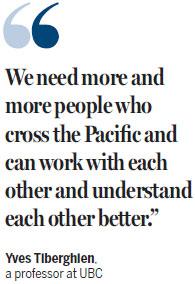
|
Professor Yves Tiberghien is optimistic about Canada's new Liberal government and how it will relate to China. Provided to China daily |
(China Daily USA 11/27/2015 page11)
- Britain's Cameron says time to bomb militants in Syria
- Russia accept full suspension from athletics
- Turkish and Russian FMs to meet in Belgrade
- S.Korea, DPRK agree to hold vice ministers' meeting for improved ties
- Avoiding escalation over Russian warplane downing
- Rights panel presses US over scientists' cases
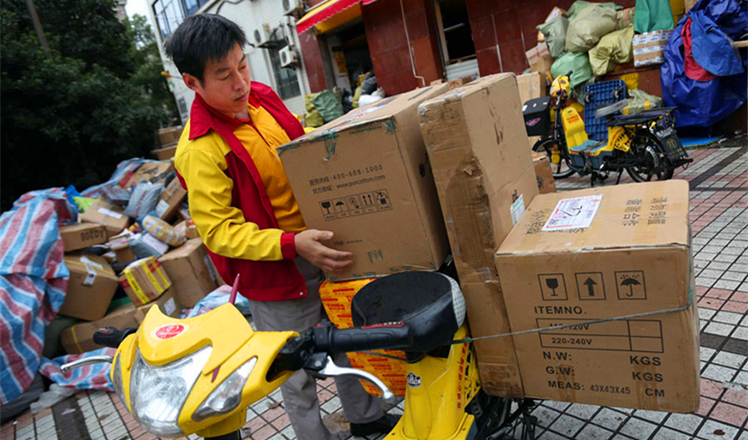
 A day in the life of a deliveryman
A day in the life of a deliveryman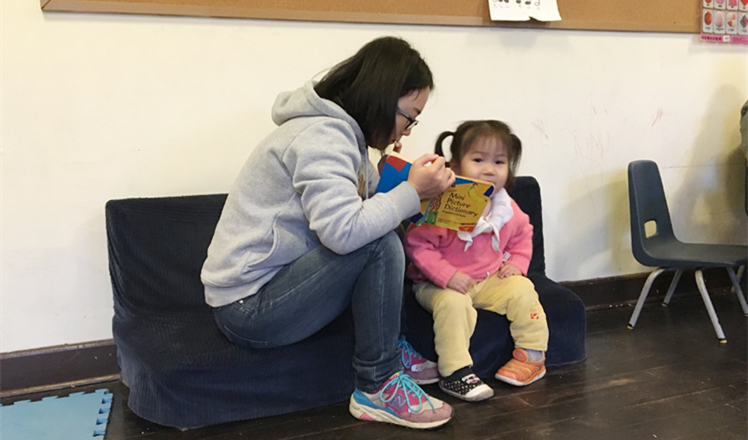
 Orphanage shows love and compassion across borders
Orphanage shows love and compassion across borders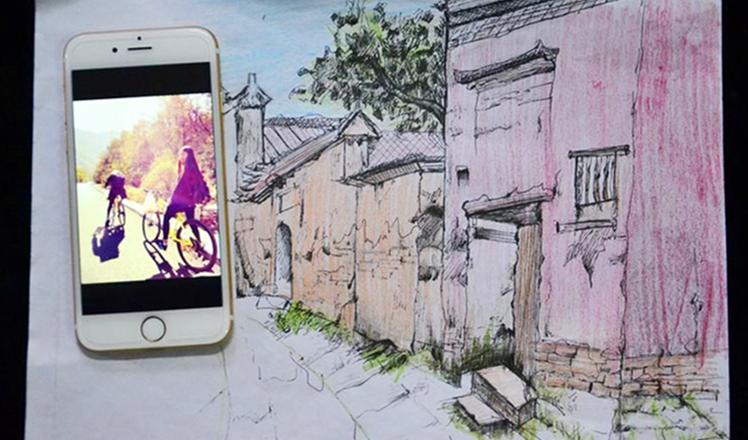
 College student paints creative travelogue
College student paints creative travelogue
 Macy's Thanksgiving Day Parade colors NYC
Macy's Thanksgiving Day Parade colors NYC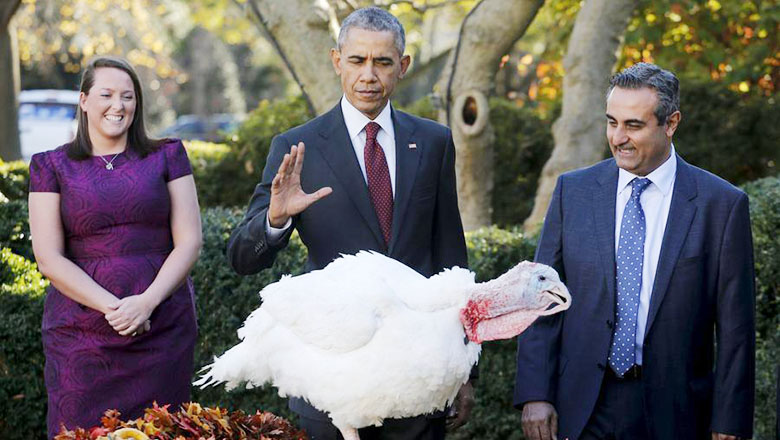
 Obama pardons National Thanksgiving Turkey 'Abe'
Obama pardons National Thanksgiving Turkey 'Abe'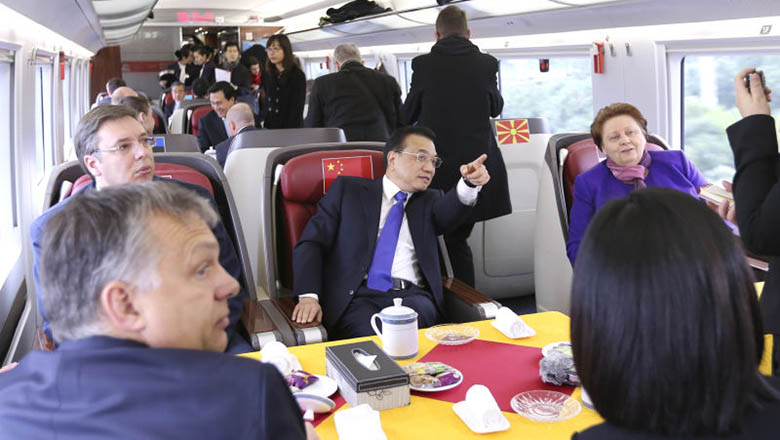
 Premier road show: Li takes CEE leaders on high-speed train ride
Premier road show: Li takes CEE leaders on high-speed train ride
 Trending: Love through war and peace
Trending: Love through war and peace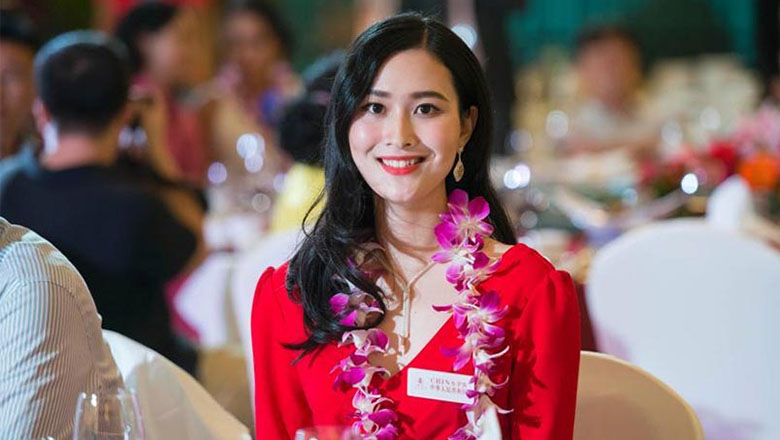
 Miss World 2015 to be crowned in Sanya
Miss World 2015 to be crowned in Sanya
Most Viewed
Editor's Picks

|

|

|

|

|

|
Today's Top News
Chinese president arrives in Turkey for G20 summit
Islamic State claims responsibility for Paris attacks
Obama, Netanyahu at White House seek to mend US-Israel ties
China, not Canada, is top US trade partner
Tu first Chinese to win Nobel Prize in Medicine
Huntsman says Sino-US relationship needs common goals
Xi pledges $2 billion to help developing countries
Young people from US look forward to Xi's state visit: Survey
US Weekly

|

|
